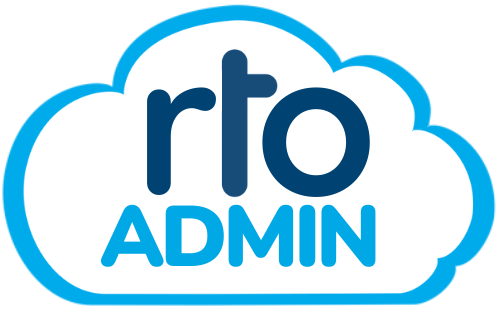Have you ever wondered what types of Registered Training Organisations (RTOs) exist and how they function within the Australian education system? Understanding the varieties and the roles they play can be crucial for both students and stakeholders in the vocational education and training (VET) sector.

RTO Definition
RTO stands for Registered Training Organisation. These are entities approved to deliver and assess nationally recognised training in Australia. The training provided by RTOs leads to qualifications that are part of the Australian Qualifications Framework (AQF). RTOs play a critical role in ensuring that students gain credentials that are both industry-relevant and recognized across the nation.
Registration and Standards
RTOs must be registered by the Australian Skills Quality Authority (ASQA) and meet the Australian Quality Training Framework 2019 (AQTF 2019) standards. These benchmarks are designed to ensure that all RTOs maintain high educational standards and offer consistent, quality training across all their programs.
Scope and Renewal
An RTO’s scope must clearly outline the specific training they offer. This ensures transparency and allows students to choose the right organisation for their educational needs. RTOs are required to renew their registration at least every five years, ensuring they continually meet the necessary standards. Additionally, they can be audited anytime by ASQA to guarantee compliance.
Benefits of Studying with RTOs
Studying with an RTO delivers numerous advantages. RTOs offer accredited vocational education and training (VET) qualifications, ensuring that you gain high-quality, industry-relevant skills and knowledge. This accreditation helps make you more competitive in the job market, offering both theoretical and practical learning experiences.
Qualification Levels
RTOs provide various levels of qualifications, catering to a diverse range of training needs and career aspirations. Here’s a quick overview:
- Certificates I-IV: These are foundational courses that provide skills and knowledge required for specific industries or job roles.
- Diploma and Advanced Diploma: These qualifications offer deeper levels of industry-specific skills and knowledge.
- Vocational Graduate Certificate and Diploma: These are specialized qualifications for advanced knowledge and skills in a particular field.
| Qualification | Description |
|---|---|
| Certificates I-IV | Foundational courses providing specific industry skills |
| Diploma | Advanced knowledge and skills for a particular sector |
| Advanced Diploma | Deeper focus on industry-specialized training |
| Vocational Graduate Certificate and Diploma | Specialized expertise in a specific field |
Types of RTOs
Understanding the various types of RTOs can help you choose the right institution for your educational journey. Here’s a breakdown:
TAFE Colleges
Technical and Further Education (TAFE) colleges are publicly funded institutions that offer a broad range of VET courses. TAFE colleges are known for their comprehensive training programs that combine theoretical knowledge with practical skills.
Private Providers
Private RTOs operate independently and offer a variety of courses, often with a strong focus on industry-specific skills. These providers can be highly flexible in terms of course delivery and timing, catering to students who may need to balance studies with other commitments.
Community Organizations
Community-based RTOs are typically non-profit organisations that offer accessible and affordable training tailored to the needs of the local community. They often provide pathways to employment and further education, particularly for disadvantaged groups.
Schools
Many secondary schools are registered as RTOs and offer vocational education and training as part of their curriculum. This allows students to gain nationally recognized qualifications alongside their secondary school certificates.
Higher Education Institutions
Some universities and higher education institutions also function as RTOs, offering VET courses alongside their traditional degree programs. This provides a broad spectrum of educational opportunities under one roof.
Industry Bodies
Various industry bodies and associations are registered as RTOs, providing training that is closely aligned with current industry standards and practices. These RTOs are particularly beneficial for individuals looking to enter or progress within a specific industry.
Regulatory Body
The Australian Skills Quality Authority (ASQA) is the regulatory body responsible for ensuring RTOs operate in compliance with national standards. ASQA oversees RTOs in most Australian states and territories, including those that offer training to international students. The authority is crucial for maintaining the integrity and quality of vocational education in Australia.
Course Offerings
RTOs offer a wide range of courses across various fields. Whether you are interested in accounting, animal care, arts and design, business, community services, education, engineering, health, IT, or other fields, there is likely an RTO providing the training you need.
| Field of Study | Example Courses |
|---|---|
| Accounting | Certificate IV in Accounting, Diploma of Accounting |
| Animal Care | Certificate III in Animal Studies |
| Arts and Design | Diploma of Graphic Design |
| Business | Certificate IV in Business Administration |
| Community Services | Diploma of Community Services |
| Education | Certificate III in Education Support |
| Engineering | Diploma of Engineering – Technical |
| Health | Certificate IV in Health Administration |
| IT | Diploma of Information Technology |
Providers and Methods
RTOs offer flexible learning methods to accommodate different needs and lifestyles. Courses can be delivered through various methods such as:
- Blended: Combining in-classroom and online learning.
- In-class: Traditional classroom settings with face-to-face interactions.
- Online: Courses delivered entirely online.
- Virtual: Real-time online classes with live interactions.
These diverse methods provide students with the flexibility to choose a learning format that best suits their circumstances. Whether you are a full-time professional, a stay-at-home parent, or a traditional student, there’s a delivery method that can accommodate your schedule.
National Database
All RTOs in Australia are listed in the National Training Information Service (NTIS) database. This database is an invaluable resource for students and stakeholders, providing detailed information about each RTO, the courses they offer, and their accreditation status. Utilising the NTIS database can help you make informed decisions about your educational journey.
Conclusion
Registered Training Organisations (RTOs) are a cornerstone of Australia’s vocational education system, offering a wide range of accredited courses that are designed to meet industry needs and standards. Whether you are looking to upskill, enter a new profession, or further your education, understanding the types of RTOs and the benefits they offer is critical.
When choosing an RTO, consider the type of institution, the courses offered, and the delivery methods available to find the best fit for your educational and career goals. With the backing of stringent regulatory standards set by ASQA, you can be assured of the quality and relevance of the training you will receive.
By understanding the various types of RTOs and their offerings, you can make an informed choice that sets you on the path to success in your chosen career.
Important Takeaways
- RTOs Provide Recognised Training: Ensuring you gain accredited qualifications.
- Types of RTOs: Including TAFE colleges, private providers, community organizations, schools, higher education institutions, and industry bodies.
- Regulatory Standards: Maintained by ASQA, ensuring high-quality education.
- Flexible Learning Methods: To accommodate various needs and lifestyles.
- NTIS Database: A valuable resource for informed decision-making.
Navigating the options within the vocational education and training landscape can be complex, but with the right information, you can find an RTO that aligns with your aspirations and life circumstances.



